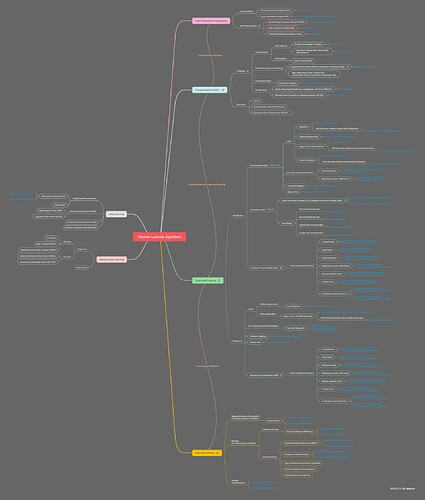Now that I have come to the end of the course, I would like to thank the inria scikit-learn team for the great effort in putting together this MOOC, for the always prompt answers and feedbacks in the forum, which is a major contribution to a positive learner experience.
More generally, I most warmly thank inria for contributing so much to the community by offering world-class courses, available to everyone.
Regarding the content itself, in my opinion, I would say that it is deep and shallow at the same time.
-
Deep for those who begin with Machine Learning and have to deal with ML concepts and terminology on one hand and Python and data handling on the other hand.
I believe that those who start Machine Learning with this course could struggle juggling between the concepts and scikit-learn. -
Shallow for those who are already familiar with the concepts and wanted to look specifically at scikit-learn, how the library is structured and how it addresses real-world challenges. Here, those who have practiced Machine Learning before have definitely got acquaintance with scikit-learn and the course could look like more a review.
So my feedback would be to have, maybe a couple of courses:
-
A course, more or less like this one, which addresses the ML concepts but more thoroughgoing, either with a couple of additional modules about Probability and Statistics, or prerequisites. Finger exercises with scikit-learn would complement the ML concepts.
Unsupervised learning, as a major topic of “classical” Machine Learning, should be added as well. -
Another type of course, more hands-on (actually what I kind of hoped for), that address projects, i.e. applied strategies with scikit-learn using real-world data, for example:
-
Projects with linear models, e.g. in many social sciences fields,
-
Projects with high-dimensional data and clustering, e.g. in genomics,
-
Projects with time-series, e.g. in environment, economics, finance, many domains that involve IoT, etc.,
An awesome idea would be to combine the two courses of inria about IoT and ML. -
etc.
-
At the end of the day, I trust the basic skills required in Machine Learning are data engineering and modeling, both related to data, which require understanding Probability and Statistics. I would say that this is a must have. You’ve rightly mentioned it, although with other words, in the “bringing value” section of your concluding remarks.
Now that Automated Machine Learning is available to everyone, almost anyone can do Machine Learning (practitioners may actually use AutoML as a benchmark to their own algorithm), the added-value is really in understanding the data.
Again, a big up to inria for this MOOC! I enjoyed all the notebooks.
Edited:
Let me share here my mind map about Machine Learning algorithms that, hopefully, helps in connecting the dots, and since we are in a scikit-learn course, I have added the relevant sklearn APIs.
A caveat is that this map is just my take about the most common algorithms and methods and is surely not exhaustive.
Another caveat is that this is a model-centric view (data is fixed) while considering a data-centric approach (improving data) would yield better performance in the real world.
https://gist.github.com/qdpham/65a3e00adb1740d644be6698cefd4601


